Departmental Seminar *in-person* - Sept 6th

 Stylised calendar data
Stylised calendar data
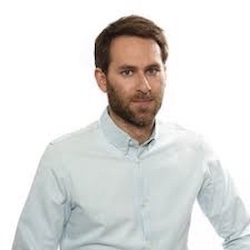
*This seminar will be in-person*
Basile GRASSI is a member of our Visiting Faculty this year, on leave from Bocconi University where he is an Assistant Professor of Economics. He is also a Research Fellow at the Centre for Economic Policy Research (CEPR) and an Affiliate at the Innocenzo Gasparini Institute for Economic Research (IGIER).
His research interests span a number of topics : Macroeconomics, Industrial Organization (IO), Firm Dynamics, Input-Output Networks (I-O), Micro-origins of Aggregate Fluctuations and Growth Theory.
Basile GRASSI will present a paper, joint with Ariel BURSTEIN and Vasco M. CARVALHO, at our first Departmental Seminar of the year on the theme:
Bottom-up Markup Fluctuations (read paper, Pdf 690.92 KB)
More about Basile GRASSI and his research
Date : Monday, September 6th, 2021 – 2 :45 PM
Location : Department of Economics – 28 rue des Saints Pères – Room H 405
Our next Departmental Seminar will host Hamish LOW (Oxford University) on September 13th.
Friday Seminar *in-person* - Sept 3rd
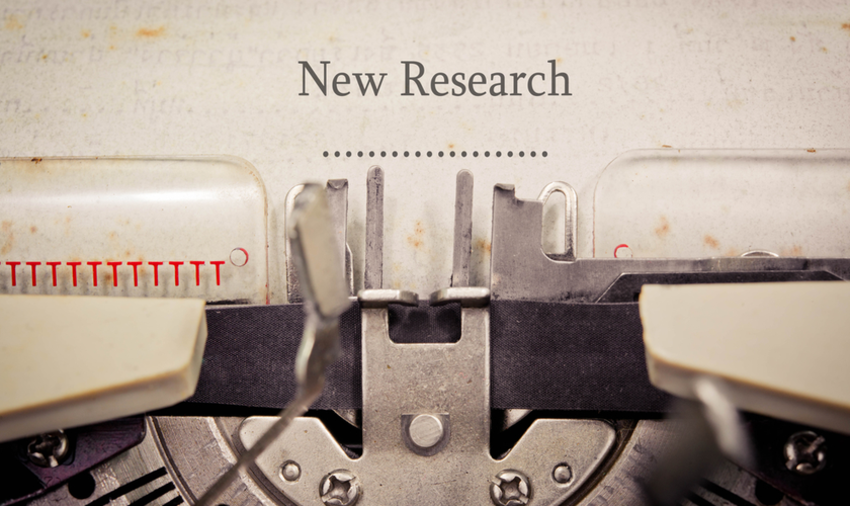
 Paper in a typewriter on which it is written "New Research"
Paper in a typewriter on which it is written "New Research"
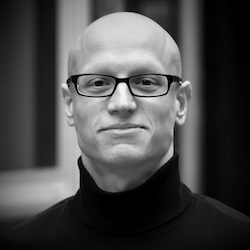
*This seminar will take place in-person*
Simon TIECHE is a PhD candidate at the University of Lausanne, visiting with us this semester, and working on a thesis in the field of international economics and finance. He is also the research assistant for Professors Philippe BACCHETTA and Kenza BENHIMA.
Simon TIECHE will present a paper at our first Friday Seminar of the year on the theme:
Zeroes in International Portfolio Choice (read abstract, PDF 18.2 KB)
More about Simon TIECHE and his research
The next Friday Seminar will host Julia CAGÉ on September 10th.
Date: Friday, September 3rd, 2021 - 12:30 - 14:00
Location: Department of Economics, 28 rue des Saints Pères - ROOM H 405
Johannes BOEHM awarded AFSE's 2021 Edmond Malinvaud Prize
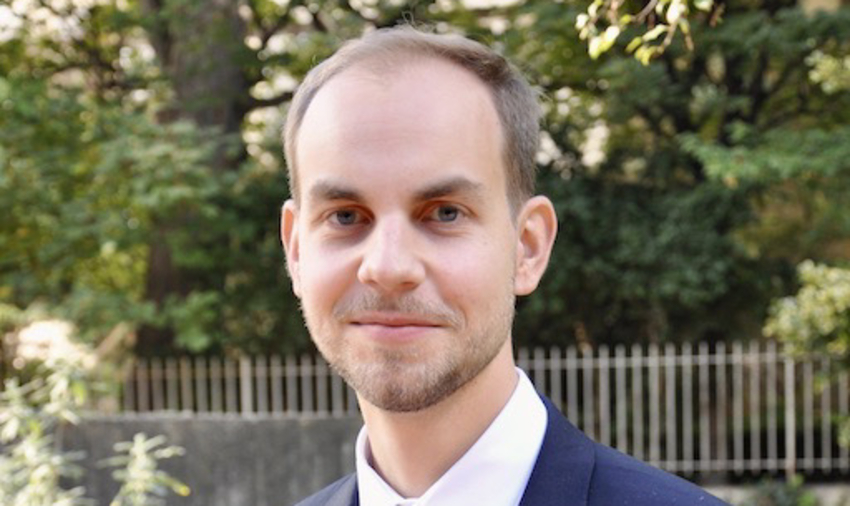
 Johannes Boehm
Johannes Boehm
 Earlier this month, the Association Française de Science Économique (AFSE) announced the 2021 laureate of its Prix Edmond Malinvaud: Johannes BOEHM.
Earlier this month, the Association Française de Science Économique (AFSE) announced the 2021 laureate of its Prix Edmond Malinvaud: Johannes BOEHM.
The AFSE (French Economic Association) is a nonprofit organization founded in 1950. It aims at promoting exchange of knowledge and participation of its members in public debates on economic policies. It is open to all economists, whether they work in universities, public research organizations, government bodies or private companies.
Every year the AFSE awards a Prize for the best paper published in an indexed EconLit, peer-reviewed journal in the past two years by a young economist affiliated to a French laboratory. The Department's permanent faculty member Johannes BOEHM was awarded the 2021 Prix Edmond Malivaud at the AFSE's Annual Congress for his paper published in the Quarterly Journal of Economics (QJE) in November 2020, co-authored by Ezra OBERFIELD (Princeton), Misallocation in the Market for Inputs: Enforcement and the Organisation of Production.
Johannes BOEHM's research focuses on macroeconomics, international trade, and industrial organization. He is particularly interested in the determinants of firm productivity and the role that firms play in the process of economic growth. To wit, in their QJE paper, Johannes BOEHM and Ezra OBERFIELD look at the distortions created by contracting frictions in the factor market as evidenced by the Indian manufacturing sector. They then look at how these distortions have an impact on productivity and industrial organisation but also how they may have a macroeconomic impact on economic development.
Johannes BOEHM is Assistant Professor at the Department since 2014. He is also a Research Affiliate of the Centre for Economic Policy Research (CEPR), a Research Associate at the Centre for Economic Performance, LSE, and an Affiliate of the CESifo Research Network. In 2016, he received the Austrian Economic Association's Young Economist Award. Johannes BOEHM was awarded an important ANR grant this past year for his project Implementing Helicopter Money: A Randomized Trial Policy (HELIMON).
Congratulations!
More about Johannes BOEHM and his research
Read about the Edmond Malinvaud Prize on AFSE's website (in French)
And read more about his paper in the upcoming edition of Sciences Po's Cogito Research Magazine
Paris Trade Seminar at PSE - June 22nd

 Containers on a ship out at sea
Containers on a ship out at sea
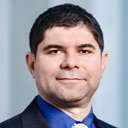
Peter H. EGGER is Professor of Applied Economics at the KOF Swiss Institute for Business Cycle Research of ETH Zürich since 2009. In the same year, he became Head of the Division Structural Change and Innovation at KOF. He is also a CEPR Research Fellow, the Co-Director of the Global Economy Programme and Research Fellow at CESifo, a scientific consultant at the Austrian Institute of Economic Research (WIFO), an External Research Fellow at the Oxford Centre of Business Taxation at the Said Business School (Oxford) and at the Centre for Globalisation and Economic Policy (Nottingham).
His research focuses on applied and theoretical panel econometrics (time-invariant variables, long- and short-run estimates, spatial econometrics), applied and theoretical international and regional economics (outsourcing, multinational firms, trade volumes; economic integration, new economic geography), industrial organization and multinational firms.
Peter H. EGGER will present a paper, joint with Katharina ERHARDT and Sergey NIGAI, at our final Paris Trade Seminar of the year - in person! - on the theme:
Empirical Productivity Distributions and International Trade
More about Peter EGGER and his research
Date: Tuesday, June 22nd - 2:30 PM
Location: Paris School of Economics - 48, boulevard Jourdan 75014 Paris - AMPHI PSE
Portrait: Eva Davoine, graduate '21
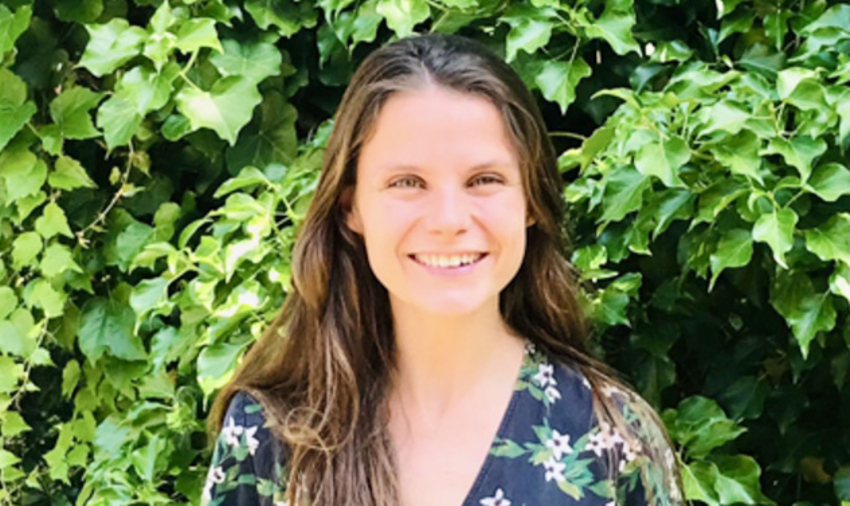
 Eva Davoine
Eva Davoine
Eva DAVOINE, just graduated from our Master's in Economics programme and will be heading off to the University of California at Berkeley (UC Berkeley) next Fall to start her PhD. She wrote her dissertation on the Yellow Vest crisis under the supervision of Professors Yann ALGAN and Benjamin MARX. She also worked as a research assistant for an economist in the research group of the World Bank.
Why choose Economics? Why undertake a PhD? Why the United States? How did Eva define the subject of her dissertation? What advice would she give to the future doctoral students? As the academic year winds down, she was kind enough to answer a few questions of Sciences Po's School of Research. Interview.
What reasons led you to engage in a Master’s in Economics at Sciences Po?
E.D. : I followed a scientific curriculum in high school, and I discovered Economics during the Collège Universitaire at Sciences Po. I found the discipline fascinating. I particularly liked the class « Applied Macroeconomic: Economic Policies in Emerging Market Countries » which made me want to study in depth economics in developing countries. I therefore took all the economics classes that I could and majored in economics during my third year abroad in California. There, I discovered that economics was taught very differently in the United States, in a more applied way, which made me like the field even more. I therefore naturally decided to pursue my education in economics and engaged in a master’s in economics at Sciences Po.
How did you determine the subject of your master’s thesis?
E.D. : In December 2018 when I had to choose a subject, the Yellow Vest crisis had just started. At the time, I was working with Pr. Yann Algan, studying the trust crisis and its impact on the rise of populism in France and Europe. The ongoing mobilization sparked my interest. I decided to study the drivers of the Yellow Vest crisis. Working on a pressing issue made me realize that research can genuinely influence policy. After submitting my master’s thesis, I had the opportunity to pursue my research at the Conseil d’Analyse Économique (CAE) and was involved in writing a note addressed to the Prime Minister in which we were presenting recommendations to solve the crisis.
You just spent to years working at the World Bank Group. Can you tell us about this experience, especially in this particular context of health crisis?
E.D. : I loved it! I was working as a research assistant for an economist within the World Bank Research Group. I contributed to several academic papers. This experience was very enriching, even in the context of the health crisis. I consider myself very lucky as I had the chance to spend one full year in Washington DC and then to keep working from home in Paris close to my friends and family. Moreover, I found it very interesting to work in such an institution during this period. I witnessed the World Bank's actions to tackle the damages caused by the pandemic, such as making sure vaccines would be distributed in developing countries as well.
When did you decide to engage in a PhD? Why did you choose Berkeley University and the United States?
E.D. : I took a gap year between the two years of my master at Sciences Po and worked both with academic researchers at the World Bank and with operations (non-research) at UN Women. Experiencing both sides, I understood that I was more interested in understanding and analyzing the developing world than in managing the implementation of programs and projects there. The decision to pursue PhD studies therefore came naturally, as I was eager to do research and better understand the questions I studied at the World Bank. I chose to do it in the United States, at UC Berkeley, because of the outstanding conditions and resources the university offers. Yet, it wasn’t easy to decide to move so far from home for the next five/six years.
What career do you plan after the PhD?
E.D. : I would like to become an academic professor to keep doing research but also to pass on what I’ve learned to others and teach!
What advice would you give to students who hesitate to go for a PhD?
E.D. : During or after the master’s degree, I encourage them to take some time to try academic and non-academic jobs, just exactly as I did during my gap year. Working as a research assistant is a good way to realize if the research world appeals them or not! It’s also an experience that will definitely serve them in the future, especially if they decide to apply for PhDs.
Read the original interview on the Research School's website










